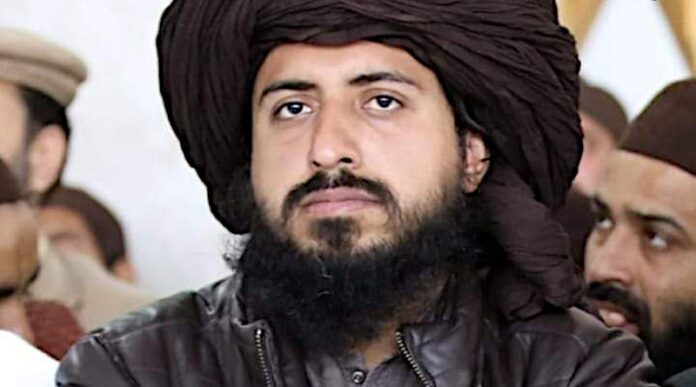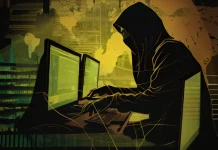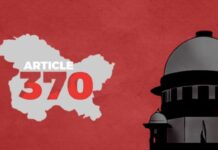The Tehrik Labaik Pakistan (TLP), in a very short time, has emerged as one of the strongest neo-fundamentalist, radical organisations. To become politically successful, the TLP needs to expand beyond its one-point agenda limited to blasphemy issues to include other socio-economic issues. The politics of the TLP variety, however, relies more on emotion rather than rationality. The half-hearted ban imposed on the TLP by the Pakistan government in the wake of the violence committed by the organisation in April 2021, it seems, is based more on immediate law and order priorities rather than on constraining its toxic, religion-based politics. The ban will not defang the religious radicalism that forms the TLPs core strength.
By Smruti S. Pattanaik
The Tehrik Labaik Pakistan (TLP), in a very short time, has emerged as one of the strongest neo-fundamentalist radical organisations. The TLP was the fifth largest party in the national elections held in July 2018. Several factors contributed to its rise. Most notable of them was the leadership provided by Allama Khadim Rizvi, the firebrand leader who used the blasphemy issue to mobilise people.
After his death in November 2020, his son and the current chief of the TLP, Saad Rizvi, is trying to find a toe-hold in right-wing politics. The government imposed a ban on his organisation on April 15, 2021 under the Anti-terrorism Act of 1997, in the wake of violence committed by its cadres demanding the expulsion of the French Ambassador, over France defending the publication of the cartoon of Prophet Mohammad.
While the controversy dates back to October 2020, Rizvi had called off a strike last year after the government had assured him of action against the French Ambassador. When his demands were not met, his organisation resorted to violence, resulting in the April 2021 ban. The government, however, after imposing the ban, a few days later introduced a resolution in the National Assembly to expel the French diplomats. The TLP celebrated this as a major victory.
The past several years have seen a decline in the fortunes of established religious political parties in Pakistan and the rise of neo-fundamentalist, street-savvy parties. The TLP gained attention when it participated in the 2016 protests along with other religious organisations against the hanging of Mumtaz Qadri, the bodyguard of the then Punjab Governor Salman Taseer, who was killed by Qadri in January 2011. Taseer’s crime was that he had described the blasphemy law as a ‘black law’ and demanded its repeal, while supporting Aasia Bibi’s appeal for mercy, who was convicted in a blasphemy case.
Later, even the Religious Minorities Minister Shahbaz Bhatti, who opposed the blasphemy law, was killed in Islamabad in March 2011. Forty religious parties and organisations formed the Tehrik Tahaffuz Namoos Risalat (TNR), which translates to ‘Protecting the Prophet’s Sanctity’, to protest against Qadri’s conviction and demanded immediate dismissal of the judge in Rawalpindi, Justice Pervez Ali Shah, who delivered the verdict. Later, this judge fled the country.
The deification of Qadri and the fact that even lawyers showered rose petals on him when he was produced in a court in Islamabad, reflected how the issue of blasphemy can inflame public passions. Thousands gathered for Qadri’s funeral while Taseer’s family struggled to arrange a Maulvi to read his funeral prayer. Perhaps what was ironic was the fact that the then Minister for Religious Affairs, Pir Muhammad Amin Ul Hasnat Shah, in a statement described Qadri as a martyr and urged people to participate peacefully in his funeral. Five hundred clerics from Jamat Ahle Sunnat supported the killing of Taseer.
The TNR came into existence after Sherry Rehman, Member of National Assembly belonging to the Pakistan People’s Party (PPP), introduced a bill in November 2010 seeking changes in the awarding of the death penalty in the contentious blasphemy law. She stated that her intention was that, “people be given a chance to prove their innocence like in all laws, and that cases be tried at the Higher courts, that penalties be given according to the Quran …” Later, the PPP clarified that the bill had been withdrawn following protests, even though Rahman clarified that the bill was a private member bill and was not even admitted for discussion by the Speaker.
Politics of Blasphemy Law in Pakistan
It needs to be noted that there are political and economic factors that underpin blasphemy cases in Pakistan. According to a study by the Centre for Social Justice, between 1997 and 2020, “1,855 people have been accused under offences related to religion – mostly under Sections 295-B and C to 298-C of the Pakistan Penal Code”. In 2020, 200 people had been accused, out of which 75 were Muslims. The same study also points out that 75 persons had been murdered extra judicially in circumstances involving an allegation of blasphemy, some even had no clue about why they were being killed. Seven were killed in police custody or by policemen. Those murdered included 39 Muslims, 23 Christians, nine Ahmadis two Hindus and two persons whose religious identity was not known.”
In many cases, it was found that the accused were illiterate and yet they were blamed for writing and sending blasphemous text messages. The cases of Manzoor, Rehmat Masih and Salamat Masih, unlettered Christians who were accused of scribbling blasphemous content on a wall of a mosque, is a grim reminder of the misuse of this law. Though Salamat Masih and Rehmat Masih had their death sentence revoked by Justice Arif Iqbal Hussain Bhatti and Justice Chaudhry Khurshid Ahmad of the Lahore High Court in 1995, a country-wide strike was called by the Milli Yakjehti Council to protest against this acquittal.
Judges are also not spared for dispensing a fair trial, as was the case with Justice Arif Iqbal who was killed in his chamber by a fanatic after he had freed the blasphemy accused. Prior to that, a Hafiz-e-Quran and practitioner of indigenous medicine, Dr Sajjad Farooq, was stoned to death by a mob instigated by the local cleric for blasphemy in 1994. Professor Attaur Rehman Saqib, the principal of Fehm-i-Quran Institute was killed in 2002. Samuel Masih, another blasphemy accused, was attacked in 2004 with a hammer by a policeman who was guarding him in prison, to avenge the alleged blasphemous act committed by him.
The violence at Gojra in 2009 and the incident of a Christian couple who were burnt alive in Kot Radha Kishan in November 2014, the case of Mashal Khan, a young student who was killed in 2017, the killing of a Bank Manager in Punjab’s Kushab due to personal animosity and its cover-up as a case of blasphemy by the guard who shot him, are only few instances. Supporting anyone who has allegedly committed blasphemy as Salman Taseer did, can be regarded as a blasphemous act. But killing someone after accusing him of blasphemy can earn a person laurels and shows how such thinking has percolated the society that sanctions such cold-blooded murder.
Most of the allegations are brought to settle personal scores.In some cases, even students have brought blasphemy charges against their teachers. In February 2021, three people were sentenced to death for uploading blasphemous material in social media. A Shia person, Taimur Raza, was sentenced to death in Bhawalpur on similar charges. A Hindu principal in Ghotki, Sindh was accused of blasphemy by his student. Blasphemy accusation was also brought against ‘Aurat march’ in Peshawar where a judge in Peshawar city ordered investigation into the matter. In April 2021, two Christian nurses were accused of committing blasphemy and charged with removing a sticker that consisted of Islamic verses from the hospital wall by another nurse who allegedly had professional jealousy with the Christian nurses.
Will the Ban Constrain the TLP?
One has seen in the past that a ban on any radical organisation has not helped. There are several other steps that the state needs to take. It needs to stop the source of funding, keep a close watch on the leadership and dismantle its support base. The TLP’s politics is centred on the issue of ‘blasphemy’. In 2018, it had demanded the expulsion of the Dutch Ambassador after cartoons of Prophet Mohammad appeared in Dutch newspapers.
It appears that while the TLP has not confined its activities just to protests against blasphemy in Pakistan, it wants to emerge as a champion for the cause of blasphemy. The emotional appeal of blasphemy that arouses popular anger has the capacity to encourage more people to take the law into their hands, as they believe that the court will free the blasphemers as was the case with Aasia Bibi.
While the TLP is banned under the Anti-Terrorism Act of 1997, the government has taken prompt action to satisfy the group. Herein lies the strength of the TLP. The supporters of the TLP who were engaged in violence and attacked the police station on April 18 demanding the release of Saad Rizvi, have been freed. After the government agreed to accept its demand to table a resolution in the National Assembly to debate the expulsion of French Ambassador, the TLP called off its nationwide strike.
The TLP is also a manifestation of Berelvi assertion wanting to prove that they can take up issues that are important to the Muslims, like the Deobandis. Though the Deobandis are generally favoured as foot soldiers of Islam, the Berelvis have proven that they cannot stay behind. Initially, the Berelvi School was more inclined to protect its faith and wanted representation and government patronisation.
In fact, the government projected the Berelvis as a moderate Islamic group and sought their help to project a moderate view of Islam. But events have proven that they are not far behind in instrumentalising violence. The Berelvi School attaches importance to the veneration of Prophet Muhammad and believes that a true Muslim is an “Ashiq-e-Rasool” (One who loves the Prophet). Therefore, anything that is considered disparaging to the Prophet is considered an act of blasphemy.
Since the blasphemy issue touches a raw nerve among the believers, the TLP will continue with its one-point agenda. To become politically successful, it needs to expand its agenda to other socio-economic issues. But politics of the TLP variety relies more on emotion than rationality. The half-hearted ban imposed on the TLP is based on the law and order perspective than on its toxic politics. The ban will not defang the radicalism that forms its core strength.
This article first appeared in www.idsa.in and it belongs to them. The author is a research associate with IDSA.












